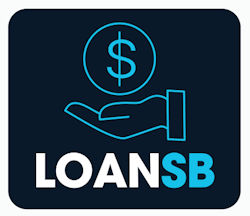To Borrow or Not to Borrow? The Pros and Cons of a Small Business Loan

Navigating the financial landscape of small business ownership often involves crucial decisions, one of the most significant being whether or not to take out a loan. For many entrepreneurs, a small business loan can provide the necessary capital to fuel growth, manage cash flow, or invest in new opportunities. However, borrowing money comes with its own set of risks and responsibilities. This article delves into the pros and cons of taking out a small business loan, providing a balanced view to help you determine if borrowing is the right move for your business.
LoanSB: Article Summary
| Pros | Cons |
|---|---|
| Access to Capital for Growth | Debt Repayment Obligations |
| Improved Cash Flow Management | Interest and Fees |
| Opportunity to Build Business Credit | Collateral Requirements |
| Leverage Investment Opportunities | Impact on Credit Rating |
| Ownership Retention | Restriction on Business Operations |
| Fixed Repayment Schedules | Long Approval Processes |
| Tax Deductible Interest | Variable Interest Rates |
| Enhanced Business Flexibility | Dependency on Debt |
| Preserving Cash Reserves | Focus on Repayment Over Growth |
| Customizable Loan Options | Impact on Business Relationships |
The Pros of Taking Out a Small Business Loan
- Access to Capital for Growth
- Immediate Funding: Loans provide quick access to significant funds, enabling businesses to seize growth opportunities, such as opening new locations, launching new products, or expanding services.
- Scalability: With sufficient capital, businesses can scale operations more rapidly than relying solely on organic growth or limited savings.
- Improved Cash Flow Management
- Buffer Against Variability: Loans help manage cash flow fluctuations, especially for businesses with seasonal sales or irregular income, ensuring they can cover operational expenses and payroll without disruption.
- Working Capital Support: A loan can serve as working capital to keep the business running smoothly, maintaining inventory levels, and managing day-to-day expenses.
- Opportunity to Build Business Credit
- Creditworthiness: Successfully obtaining and repaying a loan can establish or improve a business’s credit history, which is crucial for securing future financing at better interest rates and terms.
- Financial Reputation: Building a strong credit profile enhances the company’s reputation with lenders, suppliers, and potential investors.
- Leverage Investment Opportunities
- Competitive Advantage: Loans enable businesses to take advantage of time-sensitive opportunities, such as bulk purchasing discounts, investing in new technologies, or entering new markets ahead of competitors.
- Strategic Investments: Access to capital allows for strategic investments in marketing, staff training, or infrastructure that can provide a substantial return on investment.
- Ownership Retention
- Avoid Equity Dilution: Unlike raising capital through investors or venture funding, taking out a loan allows business owners to retain full ownership and control over their company without giving up equity.
- Decision-Making Freedom: Maintaining ownership means that all strategic decisions remain with the business owner, without external interference from investors.
- Fixed Repayment Schedules
- Predictability: Loans often come with fixed repayment schedules, allowing businesses to plan and budget effectively without the uncertainty of fluctuating payment amounts.
- Financial Planning: Knowing the exact amount due each month helps in managing cash flow and aligning repayment with revenue cycles.
- Tax Deductible Interest
- Tax Benefits: In many cases, the interest paid on a business loan is tax-deductible, which can reduce the overall tax burden and make borrowing more cost-effective.
- Financial Advantage: Deducting loan interest from taxable income can result in significant savings, improving the business’s financial health.
- Enhanced Business Flexibility
- Operational Agility: Loans provide the financial flexibility to adapt to changing market conditions, invest in innovation, or respond to unforeseen challenges without liquidating assets or tapping into emergency funds.
- Expansion Readiness: With accessible funds, businesses can quickly respond to opportunities or challenges, such as expanding into new regions or addressing sudden increases in demand.
- Preserving Cash Reserves
- Risk Management: By using a loan to finance major expenditures, businesses can preserve their cash reserves for emergencies or other critical needs, reducing the risk of liquidity crises.
- Operational Security: Maintaining cash reserves while using borrowed funds for specific projects ensures the business remains financially resilient and capable of handling unexpected expenses.
- Customizable Loan Options
- Tailored Solutions: Many lenders offer a variety of loan products with customizable terms to fit specific business needs, whether it’s short-term financing for inventory or long-term loans for capital investments.
- Diverse Funding Sources: With options ranging from traditional bank loans to online lenders and SBA loans, businesses can choose the financing solution that best aligns with their financial strategy and repayment capabilities.
The Cons of Taking Out a Small Business Loan
- Debt Repayment Obligations
- Regular Payments: Loans require regular repayments, which can strain cash flow, especially for businesses with fluctuating or unpredictable income.
- Financial Burden: Consistent repayment obligations can be challenging to manage during downturns or unexpected financial hardships, potentially impacting the business’s operational stability.
- Interest and Fees
- Cost of Borrowing: Loans come with interest rates and fees that increase the overall cost of borrowing, potentially making the loan more expensive than anticipated over time.
- Hidden Costs: In addition to interest, there may be other fees such as origination fees, prepayment penalties, or maintenance charges that can add to the total cost of the loan.
- Collateral Requirements
- Asset Risk: Many loans require collateral, putting business assets (e.g., equipment, property) at risk if the loan cannot be repaid.
- Personal Liability: In some cases, business owners might need to provide personal guarantees, which can jeopardize personal assets if the business defaults on the loan.
- Impact on Credit Rating
- Credit Risk: Missing payments or defaulting on a loan can negatively affect the business’s credit score, making it harder to secure financing in the future.
- Debt Management: High levels of debt can lower the business’s creditworthiness, potentially limiting access to other forms of credit or favorable terms.
- Restriction on Business Operations
- Covenants and Conditions: Many loans come with covenants or conditions that can restrict how the business operates, such as limitations on further borrowing, use of funds, or operational changes.
- Operational Constraints: These restrictions can limit the business’s flexibility to adapt to new opportunities or make strategic decisions without lender approval.
- Long Approval Processes
- Time-Consuming: Obtaining a loan can involve lengthy application and approval processes, including extensive documentation, credit checks, and reviews by the lender.
- Delayed Access to Funds: The time taken to secure a loan may delay critical business activities or investments, potentially missing out on timely opportunities.
- Variable Interest Rates
- Uncertainty: Loans with variable interest rates can lead to fluctuating repayment amounts, making budgeting and financial planning more challenging.
- Increased Costs: Rising interest rates can significantly increase the cost of borrowing over time, impacting profitability and financial stability.
- Dependency on Debt
- Risk of Over-Leverage: Relying too heavily on loans can lead to excessive debt, which may strain the business’s finances and increase vulnerability to economic downturns.
- Debt Cycle: Businesses may become dependent on borrowing, leading to a cycle of refinancing or taking out new loans to pay off existing ones, perpetuating debt accumulation.
- Focus on Repayment Over Growth
- Resource Allocation: Funds used for loan repayments could otherwise be invested in growth initiatives, marketing, or new product development.
- Prioritizing Debt: The focus on meeting repayment obligations can divert attention and resources away from strategic growth opportunities, limiting the business’s potential.
- Impact on Business Relationships
- Lender Influence: In some cases, lenders may have a say in business decisions or impose restrictions that affect day-to-day operations and strategic direction.
- Reputation Risks: Failing to meet loan terms or entering into multiple borrowing agreements can harm the business’s reputation with suppliers, investors, and other stakeholders.
Deciding whether to take out a small business loan is a nuanced process that requires careful consideration of both the potential benefits and the risks involved. While a loan can offer vital capital for growth and stability, it also introduces financial obligations that can impact your business’s bottom line. By weighing the pros and cons outlined above, you can make an informed decision that aligns with your business goals and financial health. Whether you choose to borrow or explore alternative financing options, understanding the implications of a loan is crucial to navigating the path toward sustained success.

Please contact us if you have any feedback or questions.


